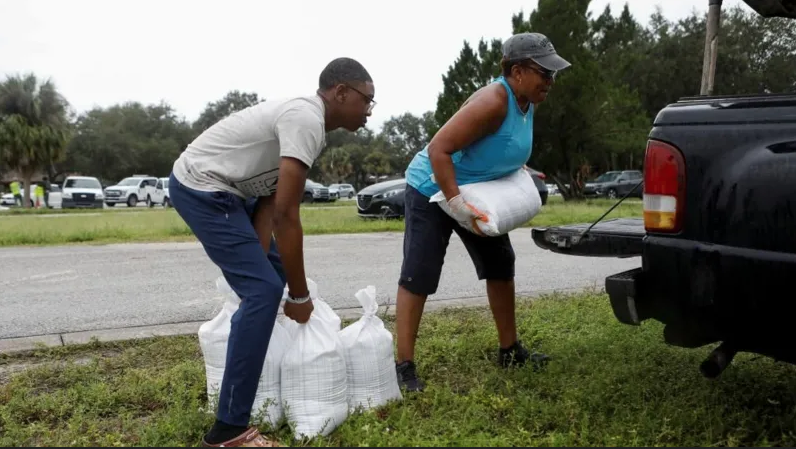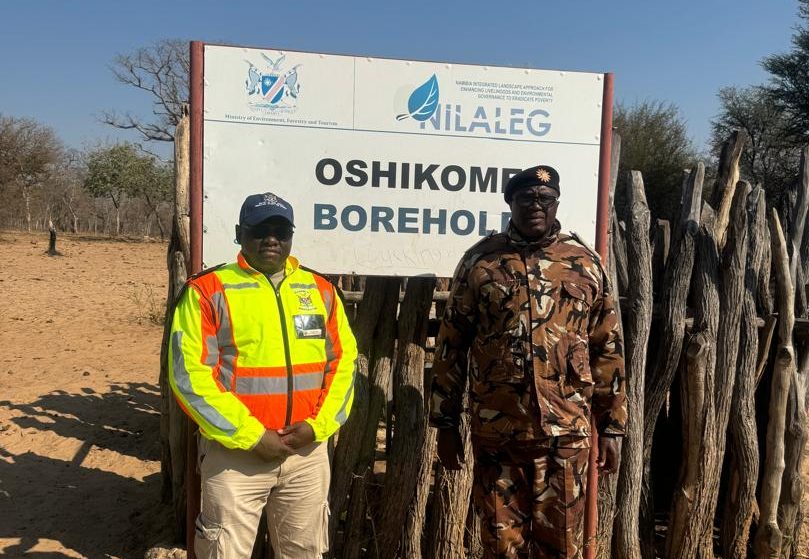30 000 active blood donors in Namibia
Written by on June 12, 2024
THE number of active blood donors in Namibia have increased to more than 30 000, which is roughly about 1,2% of the population.
This was announced by Blood Transfusion Service of Namibia (NamBTS) spokesperson Titus Shivute in celebration of World Blood Donor Day.
The day is celebrated annually on 14 June, with this year’s theme being ‘20 years of celebrating giving: thank you blood donors’.
Shivute says that although the number of donors increased, there is still room for growth.
He says they are, however, on an upward trajectory and appreciate the contributions of donors around the country.
“We currently have an 8-day blood stock level. This means that there are sufficient units of blood and blood products available for the next 8 days if no further blood collections are made.
“This is a healthy blood stock level, but we are hoping that more donations are made across the country to rebuild our reserves to the ideal blood stock level of 9 to 12 days,” he says.
Shivute says in preceding years, their blood stock levels would drop during the winter months as a large number of potential donors pick up seasonal illnesses, such as flu or a cold and can unfortunately not donate as a result.
He says to meet the demand for hospitals and medical centres across the country, NamBTS requires a minimum of 200 blood donations per day.
“The blood donation interval is 56 days, which means blood donors are only eligible to donate blood every two months. We need donors to donate at least 4 times a year to help ensure that there is always an adequate supply of blood available to patients across the country,” Shivute says.
He adds that they need 58% of their total donations to be donors with O-type blood which is compatible with all other blood types and is often transfused to patients in case of emergency.
According to the World Health Organisation (WHO), the 20th anniversary of World Blood Donor Day is an excellent opportunity to thank blood donors across the world for their life-saving donations over the years and honour the profound impact donating has on both patients and donors.
“It is also a timely moment to address continued challenges and accelerate progress towards a future where safe blood transfusion is universally accessible,” WHO says.
Among the donors is Ndapanda Kambungu, who says she has been donating blood for over three years now.
According to Kambungu, donating blood means saving lives and that is what drives her to keep donating blood.
“I believe that I have saved so many lives so far, the process is very fast and is not harmful, especially when you meet the requirements,” she says.
Tarry Gaoseb (22), another frequent donor, says his motivation stems from the desire to help others in need and that knowing his donation could potentially save someone’s life is fulfilling and motivating.
He went on to encourage first time donors to donate blood and “make a real difference in someone’s life”.
“It’s a simple act that can have a profound impact. The blood you donate could be the lifeline for someone undergoing surgery, recovering from an accident or battling a serious illness,” Gaoseb says.
Valencia Roman (23) says being able to help those in need motivates her to donate.
She says it makes her happy knowing that she gets to save a life.
“It’s not as intense as it sounds or looks, the process is very simple and easy. Think about the change that you’re making in someone’s life,” she says.
Ester Abrantes (24), who is a first time donor, says she has always had a fear of donating blood, but when she did it for the first time, she says it was not what she expected.
“This is definitely not the last time I will donate blood, because in doing so I am helping save somone’s life out there. The process was so smooth and fast, and was not painful at all, I therefore call upon anyone who is eligible to donate,” she says.
The Mayo Clinic says donating blood is a life-saving gift and they thank blood donors for making the world a better place.
“World Blood Donor Day is a day to raise awareness and recognise those who give back by donating blood. As blood cannot be manufactured in a laboratory, patients in need can only receive blood donated by others. We are so thankful and proud of our donors who come in out of pure altruism,” says Mayo Clinic Blood Donor Centre medical director Justin Kreuter.
“Without the continued support and blood donations from our community, employees and family members of patients, those patients would not receive the blood they require. It is truly a gift,” he says,
The post 30 000 active blood donors in Namibia appeared first on The Namibian.


